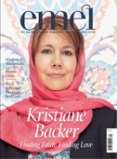
Irreconcilable Differences
Issue 96 September
“Some Muslims will declare certain activities forbidden, others look at the purpose behind each activity to decide whether it is acceptable or not.”
Unity of belief and action is often a desired outcome, however it is in the acceptance of our differences and varying opinions that true harmony can be found. Replica Rolex Watches
Many of us have irreconcilable differences in our home life. One spouse may let the children watch many hours of television, another may be obsessive over tidiness, one may spend much of his or her free time on a hobby which does not involve the rest of the family, another may be a night person while the partner wants to be up from dawn to go on a 10km run. Even if we were similar at the age of 25, as the years go past, the differences can increase. Yet no-one would suggest we have to be homogenous in order to make our families places where everyone within it can grow.
In contrast, when it comes to the practice of our faith, I have come across many people who want—and expect—all Muslims to be the same. All too often, people who get most of their knowledge on Muslims through the media will assume an action by one Muslim represents the whole community. And many Muslims also often long for conformity amongst that same community—for example, wanting all those who have embraced Islam to take an Arabic name.
A Muslim woman recently approached me very concerned about her Muslim colleagues’ reaction to a workplace event for all employees, which had been decreed by the company to be ‘’halal-friendly’’. ‘’Halal-friendly’’ meant some of the meat had been slaughtered in the correct way, to accommodate Muslims, but there was also going to be alcohol and other kinds of meat present, to accommodate others. Some of her Muslim colleagues were going. Others were staying away, in case the meat got mixed up and/or because there was alcohol present. She was worried that they were not presenting a united front to the company. She felt it was imperative that all the Muslim employees should take the same view.
In the Prophet Muhammad’s time, people had different opinions. In a story reported by Bukhari and Muslim, when his companions were travelling, he told them: “No one of you should pray Asr (the mid-afternoon prayer) until you reach the village of Bani-Qurayzah (a Jewish tribe).” While they were on their way, the time to pray Asr came. Some companions said they should not pray until they reached Bani-Qurayzah, as that was their instructions. Others said they should pray Asr now because they believed the intention behind the Prophet’s exhortation was not for them to delay the prayer, but rather to encourage the companions to hurry. So some of the companions prayed Asr on their journey, while others continued on until they reached Bani-Qurayzah after sunset and prayed Asr then. When they went back to the Prophet, he did not blame either one of them. He accepted both opinions.
In the Olympics, scholars gave their Muslim athletes different advice about fasting in Ramadan. All Muslims agree fasting from food and drink from dawn to dusk is obligatory that month. In 1980, Sulimean Nyambui of Tanzania won the 5000m silver medal while fasting, saying ‘’Once you decide to do something, God is behind you.” Yet the German Central Council of Muslims decreed that Muslim professional footballers should not fast during Ramadan, since they depend on football for a living. The English Bronze medalist rower Moe Sbihi received advice that he could feed 60 people a day instead of fasting. Muslims were not united.
Some Muslims will declare certain activities ‘’haram’’—forbidden, such as watching television, dancing or listening to music. Others look at the purpose behind each activity to decide whether it is acceptable or not—using a kitchen knife for example can be halal when used to cut vegetables and haram when used to stab someone—and so they will reach very different conclusions.
Then there is a primary principle of Islamic law: "necessity renders the forbidden permissible." It is this principle that allows people who are starving to eat pork, or women who are going to be in physical danger due to their visible outward appearance as a Muslim, to change that appearance. But this principle requires judgment. Some women decided to take off their hijabs after the 9/11 attacks believing they were in danger; others carried on as before, convinced that they were safe. Some Muslims who are teetotal will sit with colleagues who drink as they believe it is an integral part of their job—and thus their livelihood—to be there; others are adamant that they won’t.
All of those different opinions and judgments are based on faith in God, albeit manifested in different ways. Of course, differences can also be driven by people pursuing their own self-made opinions, rather than by their understanding of Divine Scripture. We all make our own choices as to how, if at all, we will express our faith.
I have just been to an event at a local synagogue and the diversity of opinions was interesting to see first-hand. I chatted with Jewish people who described themselves as secular, those who did not even turn lights on during the Sabbath and those who protested against Israel. There were those who wanted more exposure to Palestinian citizens of Israel; there were others more comfortable staying within their own community. There were those who were causing their more secular parents concern by being actively involved in Jewish youth groups; there were others whose parents were worried their adult children were not ‘Jewish enough’.
Every created being is unique—both in outer looks, and in the way our minds work and the conclusions we draw about the world around us. The Qur’an says: “If your Lord had so willed, he would have made mankind one people, but they will not cease to differ except on those whom Your Lord and Sustainer has bestowed His mercy, and for this did He create them.” (11: 118-9). These differences can be positive, expanding our horizons and allowing cross-fertilisation of ideas.
A well-known verse from the Qur’an (49:13) emphasising the diversity of humankind says: ‘’O People, We created you all from a single man and a single woman, and made you into races and tribes so that you should get to know one another. In God’s eyes, the most honoured of you are the ones most mindful of Him: God is all knowing, all aware.’’ It is only by getting to know one another that we can begin to understand the reasoning—or indeed perhaps the lack of reasoning—behind our own opinions as well as to understand others better. We can then stop expecting everyone else to be just like us or, conversely—depending on what community we are thinking about—to be totally unlike us.
One place where the spirit of unity overwhelmingly remains is on the annual pilgrimage of Hajj. iswwatches Muslims from all over the world are united by place and by time. Muslims are united by their rituals. Muslims are united by their aim, all hoping for God’s Mercy and asking for forgiveness. Yet, there are so many other occasions where that does not happen. In those circumstances, we need to accept our irreconcilable differences, peaceably and without judging the other, so that our communities can flourish. For the Qur’an tells us, “You will all return to your Lord in the end, and He will tell you the truth about your differences.” (6:164)
Lucy Bushill-Matthews is the author of ‘Welcome to Islam – a convert’s tale’
Audemars Piguet Replica Watches
Bookmark this |
|
Add to DIGG |
|
Add to del.icio.us |
|
Stumble this |
|
Share on Facebook |
|
Share this |
|
Send to a Friend |
|
Link to this |
|
Printer Friendly |
|
Print in plain text |
|

